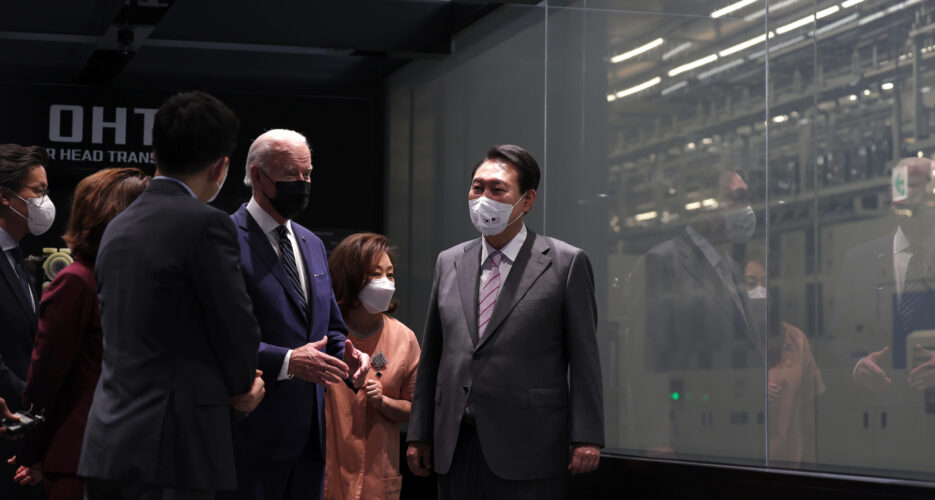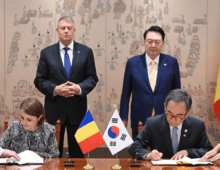Indo-Pacific Economic Framework is low risk and low reward for Seoul unlikely to raise eyebrows in Beijing, experts say
Leading up to the official launch of the U.S.-led Indo-Pacific Economic Framework (IPEF) on May 23, many were surprised at the level of enthusiasm that South Korea showed, as it previously eschewed U.S.-led trade groups and networks.
South Korea’s Yoon Suk-yeol government apparently sees the IPEF as in the “national interest,” but the real appeal may be the ambiguity and toothlessness of the deal, which doesn’t force Seoul’s economic planners to commit to anything.
Leading up to the official launch of the U.S.-led Indo-Pacific Economic Framework (IPEF) on May 23, many were surprised at the level of enthusiasm that South Korea showed, as it previously eschewed U.S.-led trade groups and networks.
South Korea’s Yoon Suk-yeol government apparently sees the IPEF as in the “national interest,” but the real appeal may be the ambiguity and toothlessness of the deal, which doesn’t force Seoul’s economic planners to commit to anything.
Get 30 days
of free access to
KoreaPro
Full access to all analysis
The KOREA PRO newsletter, every business day
Daily analysis on the top story of the day
The ability to suggest topics for coverage by our specialist team
Be smart about South Korea
Get full access to expert analysis and opinion.
Start now
No charges during your trial. Cancel anytime. A paid subscription will start after 30 days.
© Korea Risk Group. All rights reserved.
No part of this content may be reproduced, distributed, or used for
commercial purposes without prior written permission from Korea Risk
Group.












